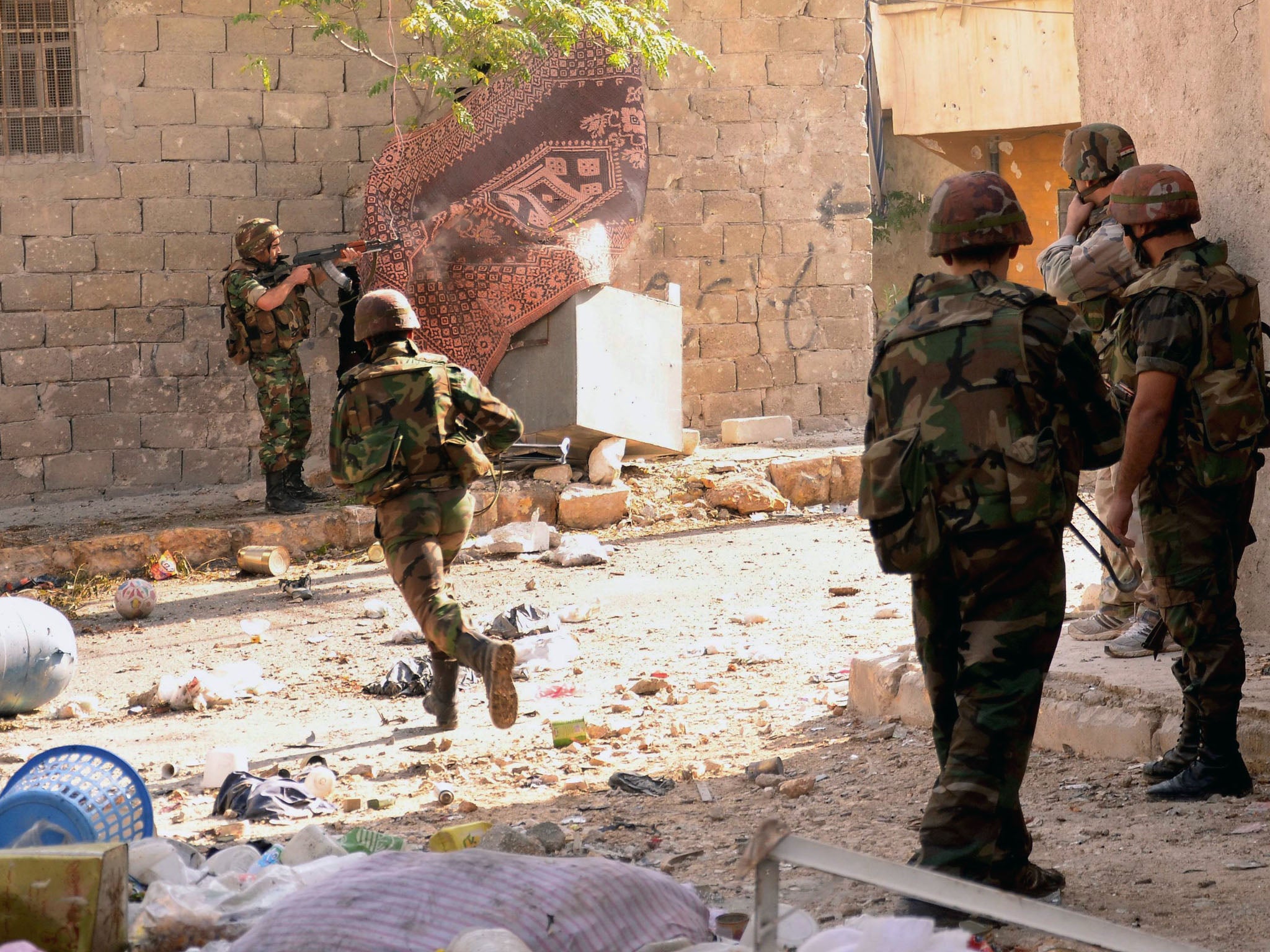Syria peace envoy warns of surge in death toll

Your support helps us to tell the story
From reproductive rights to climate change to Big Tech, The Independent is on the ground when the story is developing. Whether it's investigating the financials of Elon Musk's pro-Trump PAC or producing our latest documentary, 'The A Word', which shines a light on the American women fighting for reproductive rights, we know how important it is to parse out the facts from the messaging.
At such a critical moment in US history, we need reporters on the ground. Your donation allows us to keep sending journalists to speak to both sides of the story.
The Independent is trusted by Americans across the entire political spectrum. And unlike many other quality news outlets, we choose not to lock Americans out of our reporting and analysis with paywalls. We believe quality journalism should be available to everyone, paid for by those who can afford it.
Your support makes all the difference.The Syrian civil war could claim another 100,000 lives over the next year if the government and the rebels fighting it do not negotiate a settlement, the international peace mediator warned Sunday.
"What is happening in Syria is bad, very, very bad," said Lakhdar Brahimi, who is charged by the United Nations and the Arab League with seeking a peaceful end to 21 months of hostilities that have killed 44,000 Syrians. Speaking at the Arab League in Cairo, Brahimi added: "It is also escalating. If we have 50,000 killed in almost two years and the war stays another year, we will not have 25,000 more, we will have 100,000 more killed."
Brahimi issued his chilling prediction after one of the deadliest 24-hour periods in the conflict, which began in March 2011. Opposition groups that monitor the death toll said as many as 400 people — more than double the typical daily death toll — were killed Saturday. About half of them were civilians slain in an alleged mass killing carried out by government troops at a petrochemical university in central Syria, opposition groups reported.
In Cairo, Brahimi said he hoped for a resolution to the conflict in 2013. He proposed a cease-fire that would be followed by a transitional government until elections could be held. Without that, he said, Syria would "become hell."
The civil war in Syria is being fought with increasing ferocity. Anti-government rebels control large swaths of the country, particularly in northern Syria. The government has sent warplanes to bomb villages and cities where rebels have made gains, including parts of the capital, Damascus.
Rebels have mounted several offensives to consolidate their gains, and the Syrian military has been fighting to retake lost ground.
On Saturday, the government announced that it was in control of Deir Baalba, a suburb of the central city of Homs, after having surrounded the rebel-held town about a month ago. Opposition groups, whose reports were murky and could not be independently verified, said government forces committed a massacre in the battle for the town.
Walid Faris, a spokesman for the Revolutionary Council of Homs, said by telephone that Deir Baalba is surrounded by villages populated by members of the Alawite sect of Syrian President Bashar Assad. During the army counteroffensive, it was hit heavily by artillery shells and mortar rounds, he said, and the rebel Free Syrian Army managed to clear a small evacuation route to get most civilians out of the conflict zone.
But some remained. As government troops moved back into Deir Baalba, Faris said, 150 to 180 people were rounded up and taken to a petrochemical university, where they were executed. Their bodies and houses were burned before dawn, he said. The count was based on reports from government soldiers sympathetic to the rebels and from residents of a nearby village, who heard the gunfire and saw the fire and smoke through binoculars, Faris said.
Other reports put the death toll higher. A statement on the website of the Local Coordination Committees, a network of activists who monitor and report on the conflict, estimated that 220 people, including women and children, might have been executed.
---
Washington Post special correspondent Suzan Haidamous in Beirut contributed to this report.
Join our commenting forum
Join thought-provoking conversations, follow other Independent readers and see their replies
Comments